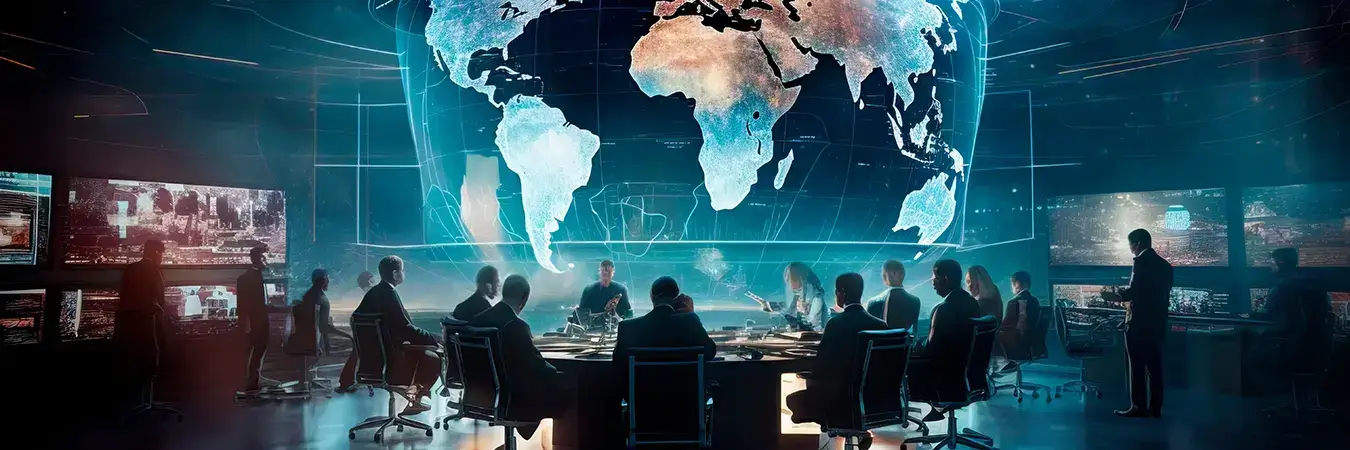Unforeseen disruptions can strike businesses at any moment. Whether it's a natural disaster, cyberattack, or global pandemic, maintaining business continuity is a matter of survival, especially for Global Capability Centers (GCCs) that serve as critical knowledge hubs for multinational corporations.
This blog post explores how organisations can build a resilient GCC in India that survives disruptions and thrives in the face of adversity.
Why Business Continuity Matters for Your GCC
Business continuity isn't just about keeping the lights on. For GCCs, it's about ensuring that critical functions like research and development, IT support, financial analysis, or engineering services continue uninterrupted, even during a crisis. A robust business continuity plan (BCP) can:
- Minimise Downtime: Reduce the duration and impact of disruptions, allowing you to quickly resume operations and minimise the impact on your parent organisation.
- Protect Revenue: Safeguard revenue streams by preventing lost productivity and delays in project delivery.
- Maintain Reputation: Demonstrate reliability and commitment to clients and stakeholders by ensuring uninterrupted delivery of high-quality services.
- Enhance Resilience: Build a more resilient GCC that can adapt to change, mitigate risks, and emerge stronger from crises.
Key Components of a GCC Business Continuity Strategy
- Risk Assessment: Identify potential threats and vulnerabilities that could disrupt your GCC operations. This could include natural disasters specific to India, region-specific cyberattacks, supply chain disruptions, macroeconomic developments, and regulatory changes.
- Impact Analysis: Assess the potential impact of each identified risk on your GCC's operations, finances, and reputation. Consider the interdependencies between different functions and the potential cascading effects of disruptions.
- Business Continuity Plan (BCP): Develop a comprehensive plan that outlines the steps to be taken to mitigate risks, respond to incidents, and recover operations. This should include detailed procedures for data backup and recovery, communication protocols, and alternative work arrangements.
- Communication Plan: Establish clear communication channels to keep employees, clients, and stakeholders well-informed during disruption of any kind – minor or major. Transparent communication is essential for maintaining trust.
- Testing and Training: Regularly test your BCP to identify gaps and weaknesses, and train GCC employees on their roles and responsibilities during a crisis. Conduct mock drills to ensure preparedness and identify areas for improvement.
Building a Resilient Center of Excellence
A dedicated centre of excellence (CoE) within your GCC can play a pivotal role in driving business resilience. By centralising expertise and resources, the CoE can:
- Develop and Maintain the BCP: The CoE can take ownership of the BCP, ensuring it is up-to-date, comprehensive, and aligned with the organisation's overall strategy.
- Provide Expertise and Guidance: The CoE can serve as a knowledge hub, providing guidance and support to other departments on business continuity best practices.
- Conduct Drills and Exercises: The CoE can lead regular testing and training exercises to ensure that employees are prepared to respond effectively to disruptions.
- Monitoring and Evaluating Risks: The CoE can continuously monitor the risk landscape and evaluate the effectiveness of the BCP, adjusting as needed.
Business Resilience in the Digital Age
Technology plays an important role in business continuity for GCCs. Cloud computing, data backup and recovery solutions, and cybersecurity measures are essential components of a resilient IT infrastructure.
Organisations should also consider leveraging emerging technologies like artificial intelligence (AI) and machine learning (ML) to enhance their business continuity capabilities. AI can be used to automate incident response, predict potential disruptions, and optimise recovery processes.
Conclusion
Building a resilient GCC in India requires commitment, investment, and a proactive approach. By prioritising business continuity and leveraging technology, organisations can ensure setting up a GCC that succeeds in its objectives.
Are you ready to build a more resilient future for your GCC? Contact Proactive Data Systems today to learn how our expertise can help you achieve your business continuity goals by helping you set up future-ready IT infrastructure.
